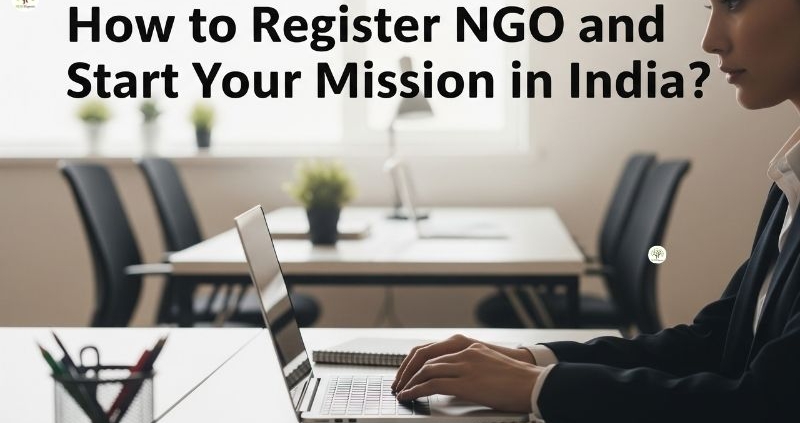Simple Guide to the Procedure to Register NGO in India
Starting an NGO is a dream for many people who want to bring change in society. I often meet individuals who have ideas and passion but feel stuck when it comes to the legal process. The good news is that the procedure to register NGO is not as complicated as it seems. With the right steps and proper guidance, you can complete it smoothly. In this article, I will explain the process in simple words so you can start your journey with confidence.
Decide the Right Legal Structure
The first step in the procedure to register NGO is to choose the right structure. In India, an NGO can be registered as a Trust, Society, or Section 8 Company. Each option has its own benefits.
- A Trust is easy to set up and works well for charitable activities.
- A Society is good if you want a democratic setup with a governing body.
- A Section 8 Company gives credibility and works best if you need corporate-style management.
Once you decide, it becomes easier to move forward.
Prepare the Required Documents
The next step is to collect and prepare your documents. This is very important because missing papers can delay the process. Basic documents usually include ID proof of members, address proof, photographs, and a memorandum of association. If you are registering a Section 8 Company, you also need to prepare Articles of Association. Keeping all documents ready makes the procedure faster.
Complete the Registration Process
After preparing documents, the registration takes place with the respective authority. For a Trust, you register under the local Sub-Registrar. For a Society, you register with the Registrar of Societies in your state. For a Section 8 Company, you apply online with the Ministry of Corporate Affairs.
This step may feel overwhelming, but with professional support, it becomes simple. At NGO Experts, I guide people through this process to ensure nothing gets missed.
Apply for Darpan Registration
Once the NGO is registered, the next step is to apply for Darpan Registration on the NITI Aayog portal. This is important because many government schemes and grants are available only for NGOs listed on this portal. The process is online and requires details of your NGO, members, and registration documents. I always recommend completing this step quickly because it helps in building trust and credibility.
Get FCRA Registration for Foreign Funding
If your NGO plans to receive funds from outside India, you must complete FCRA Registration. Without this approval, you cannot legally accept foreign contributions. The application is filed with the Ministry of Home Affairs, and the process requires details about your NGO’s activities, members, and financial records. Since compliance is strict, it is better to handle this step with expert help.
Focus on Tax Benefits
Apart from registration, many NGOs also apply for 12A and 80G certificates. These help in getting tax exemptions for the NGO and donors. While this is not a direct part of the procedure to register NGO, it plays a big role in sustaining your work. Tax benefits make it easier to attract donations and grow your impact.
Why Professional Guidance Matters
I have seen many people face delays because they try to manage everything alone. Legal steps need accuracy, and even a small mistake can cause rejection. That is why professional guidance is so useful. At NGO Experts, I make sure that every client completes the process without stress. From registration to compliance, we provide end-to-end support.
Conclusion
The procedure to register NGO may look long, but it becomes easy if you follow each step with care. First, decide the structure, prepare your documents, and complete the legal registration. After that, apply for Darpan Registration and, if needed, go for FCRA Registration. Once these steps are complete, your NGO is ready to start making a difference.
Starting an NGO is not just about paperwork. It is about turning your ideas into action. With the right legal setup, you can focus on what matters most—serving people and creating positive change.


Leave a Reply
Want to join the discussion?Feel free to contribute!